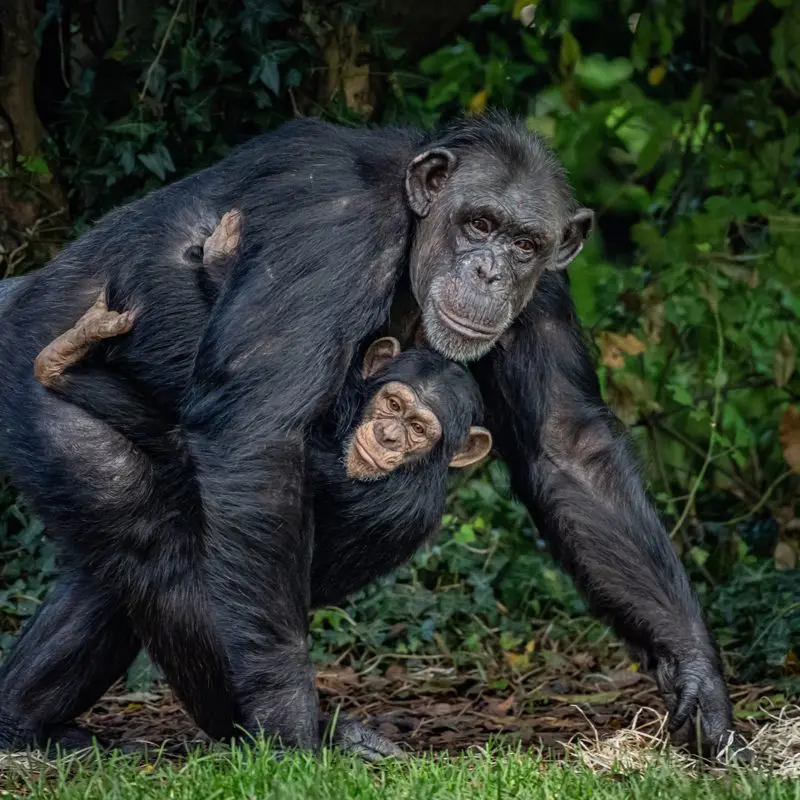Chimpanzee Intelligence: Why They Rank Among the Smartest Animals on Earth
Introduction: The Genius of Chimpanzees
Chimpanzees stand as one of the most intelligent species in the animal kingdom, second only to humans in cognitive complexity. Sharing 98.7% of our DNA, these primates exhibit problem-solving skills, emotional depth, and social structures that rival human societies. Their ability to innovate, communicate, and form intricate social bonds makes them a focal point in the study of animal intelligence.
But what exactly makes chimpanzees so intelligent? How do their cognitive abilities compare to other highly intelligent animals like dolphins, elephants, and octopuses? This in-depth exploration dives into the remarkable intelligence of chimpanzees, examining their tool use, social dynamics, communication skills, and more.
Understanding Chimpanzee Intelligence: Cognitive Mastery
1. Problem-Solving and Strategic Thinking
Chimpanzees demonstrate advanced problem-solving abilities, often outperforming many other animals in cognitive tests. Studies show they can:
-
Use tools (sticks for termite fishing, stones for nut-cracking).
-
Plan ahead (storing tools for future use).
-
Solve multi-step puzzles (stacking boxes to reach food).
Their ability to understand cause and effect sets them apart from most species. In captivity, chimpanzees have learned to operate computers, recognize symbols, and even outperform humans in short-term memory tests.
2. Tool Use and Cultural Learning
Unlike instinct-driven animals, chimpanzees modify and innovate tools based on need. Different groups develop unique cultural practices, such as:
-
Termite fishing (using sticks to extract insects).
-
Nut-cracking (selecting the right stone as a hammer).
-
Leaf sponging (using leaves to soak up water).
These behaviors are taught across generations, proving that chimpanzees possess cultural transmission—a trait once thought exclusive to humans.
Social Intelligence: The Politics of Chimpanzee Societies
3. Complex Hierarchies and Power Struggles
Chimpanzee communities operate under fluid dominance hierarchies, where leadership depends on:
-
Alliances (males forming coalitions to overthrow alphas).
-
Social manipulation (grooming favors to gain support).
-
Conflict resolution (mediating disputes to maintain order).
Alpha males rule not just through strength but political strategy, much like human leaders.
4. Empathy and Altruism: Emotional Depth in Chimps
Chimpanzees display profound emotional intelligence, including:
-
Consoling distressed peers (hugging, grooming).
-
Sharing food (especially with kin or allies).
-
Helping injured group members (demonstrating compassion).
Experiments reveal they prefer cooperative choices, even when a selfish option exists—proving they understand fairness and reciprocity.
Communication: The Language of Chimpanzees
5. Vocalizations, Gestures, and Facial Expressions
While they lack human language, chimpanzees communicate through:
-
Distinct calls (alarm signals, food announcements).
-
Body language (begging gestures, dominance displays).
-
Facial expressions (play faces, fear grimaces).
Some captive chimps have learned sign language and symbol-based communication, showing an ability to grasp abstract concepts.
6. Theory of Mind: Understanding Others’ Perspectives
Chimpanzees exhibit “Theory of Mind”—the ability to infer what others know or want. They:
-
Deceive rivals (hiding food from dominant chimps).
-
Anticipate reactions (adjusting behavior based on others’ moods).
-
Cooperate strategically (team hunting with role assignments).
This cognitive skill is rare in the animal kingdom and highlights their advanced social intelligence.
Chimpanzees vs. Other Intelligent Animals
7. How Do Chimps Compare to Dolphins, Elephants, and Octopuses?
While many animals display intelligence, chimpanzees excel in:
-
Tool use (more diverse than dolphins or elephants).
-
Social strategy (more complex than octopus problem-solving).
-
Cultural learning (unlike solitary intelligent species like ravens).
However, dolphins lead in communication complexity, while elephants showcase long-term memory and grief. Yet, chimpanzees remain the closest to humans in overall cognitive abilities.
Conservation: Protecting Chimpanzee Intelligence
8. Threats to Their Survival
Despite their brilliance, chimpanzees face:
-
Habitat destruction (deforestation, human encroachment).
-
Poaching (bushmeat trade, illegal pet markets).
-
Disease (human-transmitted illnesses like Ebola).
9. How Can We Help?
Supporting conservation efforts (Jane Goodall Institute, WWF) and ethical tourism ensures their survival. Legal protections are also growing, with some countries granting chimps “personhood” rights.
Conclusion: Chimpanzees—A Reflection of Human Intelligence
Chimpanzees are not just smart animals—they are sentient, emotional, and culturally sophisticated beings. Their intelligence challenges our understanding of cognition, emotion, and social evolution. By studying and protecting them, we not only preserve a species but also unlock secrets about our own minds.






